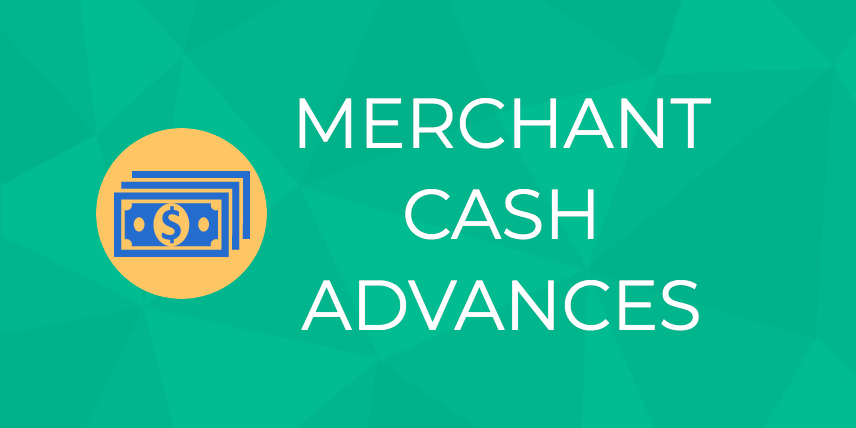Running a business often comes with unexpected challenges and cash flow gaps. Whether it's a slow sales month, an urgent equipment upgrade, or an opportunity for growth, access to quick capital can make or break a business. One financial product that’s gained popularity for its speed and flexibility is the Merchant Cash Advance (MCA).

Although not technically a loan, a Merchant Cash Advance provides businesses with fast funding based on their future sales. In this blog, we’ll explain what an MCA is, how it works, its pros and cons, and who it’s best suited for.
What is a Merchant Cash Advance?
A Merchant Cash Advance is a type of financing where a business receives a lump sum of cash in exchange for a percentage of its future credit card or debit card sales. It’s commonly used by small businesses that have steady sales but may not qualify for traditional loans due to lower credit scores or limited operating history.
Unlike traditional loans, MCAs are not repaid in fixed monthly installments. Instead, repayment is automatically deducted from the business's daily or weekly sales, making it a more flexible and dynamic option.
How Does a Merchant Cash Advance Work?
The process for getting an MCA typically follows these steps:
- Application – Businesses submit basic documents like bank statements, proof of sales, and identification.
- Approval & Offer – If approved, the provider offers a lump sum amount along with a "factor rate" (e.g., 1.2 to 1.5).
- Acceptance & Funding – Once accepted, funds are deposited, often within 24 to 48 hours.
- Repayment – A fixed percentage of daily credit/debit card sales is automatically withheld until the advance is fully repaid.
For example:
- Advance amount: $20,000
- Factor rate: 1.3
- Total repayment: $26,000 ($20,000 × 1.3)
- Daily repayment: 10% of daily card sales until $26,000 is fully repaid
Key Features of a Merchant Cash Advance
- Fast approval – Some MCA providers approve applications in less than 24 hours.
- No collateral required – It’s unsecured funding, so assets aren’t at risk.
- Credit flexibility – Approval is based more on sales history than credit score.
- Flexible repayments – Payments scale with your revenue, easing the burden in slow months.
Advantages of a Merchant Cash Advance
1. Quick Access to Funds
Most MCAs are approved and funded within a few business days, making them ideal for emergencies or time-sensitive opportunities.
2. Simple Qualification
Since MCAs are based on future sales rather than credit score or collateral, businesses with limited credit history can still qualify.
3. No Fixed Monthly Payments
Repayment is tied to your revenue. If your sales drop, so do your payments, which can ease the strain during slower periods.
4. Minimal Paperwork
Unlike bank loans that require piles of documentation, MCA applications are generally straightforward and hassle-free.
5. Flexible Use of Funds
There are no restrictions on how you use the funds—marketing, inventory, renovations, payroll—whatever your business needs.
Disadvantages of a Merchant Cash Advance
1. Higher Costs
The total repayment amount can be significantly higher than with traditional loans. Factor rates (e.g., 1.3 or 1.4) translate to effective APRs that can exceed 50% to 100%.
2. Frequent Repayments
Daily or weekly deductions can strain cash flow, especially if sales fluctuate or are inconsistent.
3. Lack of Regulation
MCAs are not subject to the same federal lending laws as traditional loans. This means there’s less oversight, and some providers may use aggressive collection tactics or have unclear terms.
4. Short Repayment Terms
Repayment periods typically range from 3 to 12 months, which might not be ideal for businesses looking for long-term financing.
Is a Merchant Cash Advance Right for You?
MCA May Be a Good Fit If:
- Your business has strong daily credit/debit card sales.
- You need funding fast and can’t wait for a traditional loan.
- You’ve been denied other financing due to poor credit.
- You need short-term cash to seize a time-sensitive opportunity.
MCA May Not Be a Good Fit If:
- You want low-cost, long-term financing.
- Your sales are seasonal or inconsistent.
- Your profit margins are already tight.
How to Choose a Reliable MCA Provider
If you’re considering a Merchant Cash Advance, it’s crucial to choose a reputable provider. Here are some tips:
- Compare Factor Rates – A lower rate means lower overall repayment.
- Understand the Terms – Make sure you know the repayment schedule, fees, and any penalties.
- Check Reviews and Ratings – Look for feedback from other small business owners.
- Ask About Early Repayment – Some providers offer discounts for early payoff; others don’t.
- Transparent Communication – Avoid providers that are vague or reluctant to explain details.
Alternatives to Merchant Cash Advances
If an MCA doesn't feel like the right fit, consider these alternatives:
- Business Line of Credit – Flexible borrowing with lower interest rates and revolving access.
- Short-Term Loans – Similar speed to MCAs, but often have more predictable payments.
- Equipment Financing – Specifically for purchasing or upgrading business equipment.
- Invoice Financing – Advance against your unpaid invoices to improve cash flow.
- Crowdfunding or Peer-to-Peer Lending – Innovative ways to raise capital with fewer traditional hurdles.
Final Thoughts
A Merchant Cash Advance can be a lifesaver for businesses needing immediate cash, especially those with limited financing options. Its fast approval process, flexible repayment structure, and minimal credit requirements make it appealing to small business owners in tight spots.
However, the convenience comes at a cost. Higher fees, daily repayment obligations, and a lack of regulation mean you should tread carefully. Before accepting an MCA, fully understand the terms, compare multiple offers, and consider how the repayments will impact your daily cash flow.
When used wisely and responsibly, an MCA can be a helpful tool to keep your business running smoothly and even unlock new growth opportunities.






Comments